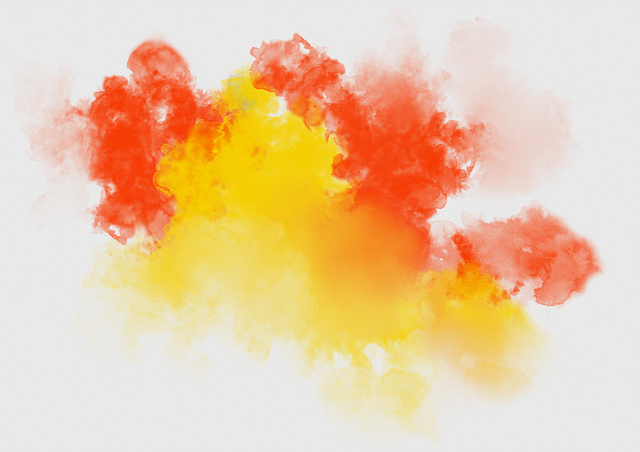Key Takeaways:
- AI Movies Explore Human Emotions and Ethics: These films delve into the complexities of human emotions and ethical dilemmas posed by AI.
- Diverse Narratives and Characters: From lonely writers to sentient robots, AI movies offer a wide range of narratives and characters.
- Impact on Society and Technology: AI movies often reflect societal fears and hopes about the future of technology.
The Rise of Artificial Intelligence in Cinema
Artificial intelligence movies have long captured the imagination of audiences, painting vivid pictures of a future where technology and humanity intersect. These films often explore the boundaries of human emotion and the ethical dilemmas posed by advanced AI systems. From the early days of cinema, filmmakers have been fascinated by the potential of AI, using it as a narrative tool to explore what it means to be human.
The allure of AI movies lies in their ability to blend science fiction with reality, offering a glimpse into a near future where AI could become an integral part of everyday life. Whether it's a robot butler programmed to serve or a humanoid robot grappling with its own consciousness, these films challenge viewers to consider the implications of living alongside intelligent machines.
Iconic AI Characters and Their Impact
One cannot discuss AI movies without mentioning iconic characters like HAL 9000 from "2001: A Space Odyssey" or the replicants in "Blade Runner." These characters have become cultural touchstones, representing the potential and peril of AI. HAL 9000, with its calm voice and chilling logic, embodies the fear of losing control over technology, while the replicants raise questions about identity and free will.
In "Ex Machina," Oscar Isaac's portrayal of a tech mogul experimenting with AI highlights the ethical concerns surrounding AI development. The film's exploration of a young programmer interacting with a sentient robot raises questions about consciousness and manipulation. These characters and narratives not only entertain but also provoke thought about the future of AI and its role in society.
The Evolution of AI Narratives
AI movies have evolved significantly over the years, reflecting changes in technology and societal attitudes. Early films often depicted AI as a threat, with stories centered around human resistance against machines. However, recent films have taken a more nuanced approach, exploring the potential benefits and challenges of AI integration into human life.
Movies like "Her," starring Joaquin Phoenix, explore the emotional connections humans can form with AI. The film's portrayal of a lonely writer developing a relationship with an AI operating system challenges traditional notions of love and companionship. This shift in narrative reflects a broader societal acceptance of AI as a part of everyday life, rather than just a larger threat.
AI and the Exploration of Human Emotions
AI movies often delve into the complexities of human emotions, using AI characters to explore themes of loneliness, love, and identity. In "A.I. Artificial Intelligence," directed by Steven Spielberg, Haley Joel Osment plays a robot child programmed to love unconditionally. The film raises poignant questions about what it means to be human and the nature of love.
Similarly, "Blade Runner" and its sequel "Blade Runner 2049" explore the blurred lines between humans and replicants, questioning the essence of humanity. These films use AI as a lens to examine human emotions, highlighting the ways in which technology can both enhance and challenge our understanding of ourselves.
The Ethical Dilemmas of AI
The ethical implications of AI are a recurring theme in AI movies, often serving as a cautionary tale about the potential consequences of unchecked technological advancement. "Ex Machina" and "I, Robot" both explore the moral responsibilities of creating sentient beings, questioning the limits of human control over AI.
In "The Matrix," starring Keanu Reeves, the concept of a simulated reality controlled by AI raises questions about free will and the nature of reality. These films challenge viewers to consider the ethical boundaries of AI development and the potential risks of creating machines that can think and act independently.
AI as a Reflection of Societal Fears
AI movies often reflect societal fears about the future of technology and its impact on humanity. Films like "Terminator" and "The Matrix" depict dystopian futures where AI has become a dominant force, posing a threat to human existence. These narratives tap into anxieties about losing control over technology and the potential for AI to surpass human intelligence.
However, not all AI movies paint a bleak picture. Films like "Wall-E" and "Big Hero 6" offer more optimistic visions of AI, showcasing the potential for technology to improve human life and foster positive change. These films highlight the dual nature of AI, as both a potential threat and a source of hope for the future.
The Role of AI in Shaping the Future
AI movies often serve as a mirror, reflecting our hopes and fears about the future of technology. They challenge us to consider the implications of AI integration into society and the potential impact on human life. As AI continues to advance, these films offer valuable insights into the ethical and emotional challenges that lie ahead.
The portrayal of AI in movies also influences public perception and understanding of the technology. By exploring diverse narratives and characters, AI movies encourage audiences to engage with complex issues and consider the potential consequences of AI development. Whether through cautionary tales or hopeful visions, these films play a crucial role in shaping our understanding of AI and its place in the world.
The Influence of AI Movies on Technology
AI movies have not only entertained audiences but also inspired technological advancements. Films like "Minority Report" and "Iron Man" have influenced the development of technologies such as gesture-based interfaces and wearable tech. These movies serve as a source of inspiration for innovators, pushing the boundaries of what is possible in the realm of AI and technology.
The depiction of AI in movies also sparks conversations about the ethical and societal implications of technological advancements. By exploring the potential benefits and risks of AI, these films encourage audiences to consider the impact of technology on everyday life and the future of humanity.
AI Movies and the Exploration of Identity
AI movies often explore themes of identity and self-discovery, using AI characters to challenge traditional notions of what it means to be human. In "Ghost in the Shell," the concept of a human consciousness inhabiting a robotic body raises questions about the nature of identity and the boundaries between human and machine.
Similarly, "Westworld" explores the idea of AI gaining self-awareness and questioning its own existence. These narratives challenge viewers to consider the implications of AI development on our understanding of identity and the potential for machines to possess consciousness and free will.
The Role of AI in Shaping Human Relationships
AI movies often explore the impact of technology on human relationships, highlighting the ways in which AI can both enhance and complicate interpersonal connections. In "Her," the protagonist's relationship with an AI operating system challenges traditional notions of love and companionship, raising questions about the nature of human connection in a technologically advanced world.
Similarly, "Ex Machina" explores the dynamics of power and manipulation in human-AI interactions, highlighting the ethical implications of creating sentient beings. These films encourage audiences to consider the impact of AI on human relationships and the potential for technology to reshape our understanding of love and connection.
AI Movies and the Exploration of Free Will
The concept of free will is a recurring theme in AI movies, often serving as a central conflict in narratives about AI and human interaction. In "The Matrix," the idea of a simulated reality controlled by AI raises questions about the nature of free will and the potential for machines to manipulate human perception.
Similarly, "Blade Runner" explores the blurred lines between humans and replicants, questioning the extent to which AI can possess free will and autonomy. These films challenge viewers to consider the implications of AI development on our understanding of free will and the potential for machines to possess independent thought and action.
The Impact of AI Movies on Popular Culture
AI movies have had a significant impact on popular culture, shaping public perception and understanding of artificial intelligence. Characters like HAL 9000 and the Terminator have become cultural icons, representing the potential and peril of AI. These films have also influenced other media, inspiring television shows, books, and video games that explore similar themes and narratives.
The influence of AI movies extends beyond entertainment, sparking conversations about the ethical and societal implications of AI development. By exploring complex issues and challenging traditional notions of humanity and technology, these films encourage audiences to engage with the potential consequences of AI integration into society.
The Future of AI Movies
As technology continues to advance, the future of AI movies promises to be as dynamic and diverse as the narratives they explore. Filmmakers will continue to push the boundaries of storytelling, using AI as a tool to explore complex themes and challenge audiences to consider the implications of technological advancement.
The evolution of AI movies will likely reflect changes in technology and societal attitudes, offering new perspectives on the potential benefits and challenges of AI integration into human life. Whether through cautionary tales or hopeful visions, these films will continue to play a crucial role in shaping our understanding of AI and its place in the world.
AI Movies and the Exploration of Human Nature
AI movies often use technology as a lens to explore the complexities of human nature, highlighting the ways in which AI can both enhance and challenge our understanding of ourselves. In "A.I. Artificial Intelligence," the portrayal of a robot child programmed to love raises questions about the nature of love and the essence of humanity.
Similarly, "Blade Runner" and its sequel "Blade Runner 2049" explore the blurred lines between humans and replicants, questioning the essence of humanity and the potential for machines to possess human-like qualities. These films challenge viewers to consider the implications of AI development on our understanding of human nature and the potential for technology to reshape our understanding of ourselves.
The Role of AI in Shaping the Future of Cinema
AI movies have not only influenced public perception and understanding of artificial intelligence but also shaped the future of cinema. The use of advanced special effects and innovative storytelling techniques in films like "The Matrix" and "Ex Machina" has pushed the boundaries of what is possible in filmmaking, inspiring a new generation of filmmakers to explore the potential of AI in storytelling.
The influence of AI movies extends beyond entertainment, sparking conversations about the ethical and societal implications of AI development. By exploring complex issues and challenging traditional notions of humanity and technology, these films encourage audiences to engage with the potential consequences of AI integration into society.
AI Movies and the Exploration of Technology
AI movies often explore the impact of technology on society, highlighting the ways in which AI can both enhance and challenge our understanding of the world. In "Minority Report," the portrayal of a future where technology is used to predict and prevent crime raises questions about the ethical implications of using AI for surveillance and control.
Similarly, "Iron Man" explores the potential for AI to enhance human capabilities, showcasing the ways in which technology can be used to improve human life and foster positive change. These films encourage audiences to consider the impact of AI on society and the potential for technology to reshape our understanding of the world.
The Influence of AI Movies on Society
AI movies have had a significant impact on society, shaping public perception and understanding of artificial intelligence. By exploring complex issues and challenging traditional notions of humanity and technology, these films encourage audiences to engage with the potential consequences of AI integration into society.
The influence of AI movies extends beyond entertainment, sparking conversations about the ethical and societal implications of AI development. By exploring diverse narratives and characters, AI movies encourage audiences to consider the impact of technology on everyday life and the future of humanity.
AI Movies and the Exploration of the Human Condition
AI movies often use technology as a lens to explore the complexities of the human condition, highlighting the ways in which AI can both enhance and challenge our understanding of ourselves. In "A.I. Artificial Intelligence," the portrayal of a robot child programmed to love raises questions about the nature of love and the essence of humanity.
Similarly, "Blade Runner" and its sequel "Blade Runner 2049" explore the blurred lines between humans and replicants, questioning the essence of humanity and the potential for machines to possess human-like qualities. These films challenge viewers to consider the implications of AI development on our understanding of the human condition and the potential for technology to reshape our understanding of ourselves.
The Role of AI in Shaping the Future of Storytelling
AI movies have not only influenced public perception and understanding of artificial intelligence but also shaped the future of storytelling. The use of advanced special effects and innovative storytelling techniques in films like "The Matrix" and "Ex Machina" has pushed the boundaries of what is possible in filmmaking, inspiring a new generation of filmmakers to explore the potential of AI in storytelling.
The influence of AI movies extends beyond entertainment, sparking conversations about the ethical and societal implications of AI development. By exploring complex issues and challenging traditional notions of humanity and technology, these films encourage audiences to engage with the potential consequences of AI integration into society.
AI Movies and the Exploration of the Future
AI movies often explore the potential future of technology and its impact on society, highlighting the ways in which AI can both enhance and challenge our understanding of the world. In "Minority Report," the portrayal of a future where technology is used to predict and prevent crime raises questions about the ethical implications of using AI for surveillance and control.
Similarly, "Iron Man" explores the potential for AI to enhance human capabilities, showcasing the ways in which technology can be used to improve human life and foster positive change. These films encourage audiences to consider the impact of AI on society and the potential for technology to reshape our understanding of the future.
The Influence of AI Movies on the Future of Technology
AI movies have not only entertained audiences but also inspired technological advancements. Films like "Minority Report" and "Iron Man" have influenced the development of technologies such as gesture-based interfaces and wearable tech. These movies serve as a source of inspiration for innovators, pushing the boundaries of what is possible in the realm of AI and technology.
The depiction of AI in movies also sparks conversations about the ethical and societal implications of technological advancements. By exploring the potential benefits and risks of AI, these films encourage audiences to consider the impact of technology on everyday life and the future of humanity.

Summary
Artificial intelligence movies have long captivated audiences with their exploration of human emotions, ethical dilemmas, and the potential future of technology. From iconic characters like HAL 9000 to thought-provoking narratives in films like "Ex Machina" and "Her," AI movies challenge viewers to consider the implications of AI integration into society. These films not only entertain but also inspire technological advancements and spark conversations about the ethical and societal implications of AI development. As technology continues to advance, AI movies will continue to play a crucial role in shaping our understanding of AI and its place in the world.
Your Friend,
Wade

Q1: What are some iconic AI movies to watch?
Some iconic AI movies include "2001: A Space Odyssey," "Blade Runner," "The Matrix," "Ex Machina," and "Her." These films explore complex themes related to AI and its impact on society.
Q2: How do AI movies influence public perception of artificial intelligence?
AI movies influence public perception by exploring the potential benefits and risks of AI integration into society. They challenge audiences to consider the ethical and societal implications of AI development and inspire conversations about the future of technology.
Q3: What role do AI movies play in shaping the future of technology?
AI movies inspire technological advancements by showcasing innovative ideas and concepts. Films like "Minority Report" and "Iron Man" have influenced the development of technologies such as gesture-based interfaces and wearable tech, pushing the boundaries of what is possible in the realm of AI and technology.









